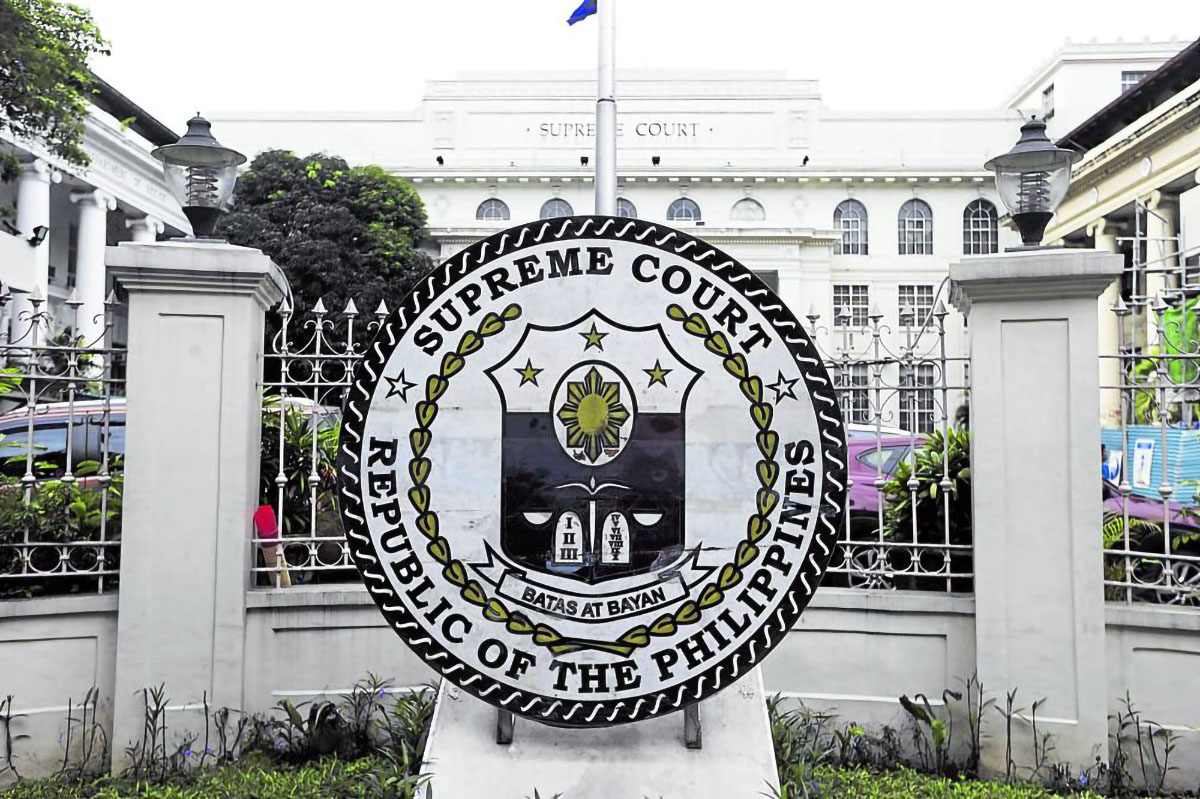SC: Reopen graft cases vs ex-DBP officials

Supreme Court—INQUIRER FILE PHOTO / NINO JESUS ORBETA
The Supreme Court has ordered the Sandiganbayan to reopen the graft cases filed against former officials of the state-owned Development Bank of the Philippines (DBP) over the grant of P660 million in alleged behest loans to a company of the late Roberto Ongpin.
In a 20-page decision promulgated in August 2023 but made public only recently, the Supreme Court’s Second Division, voting 5-0, granted the petition for review challenging the Sandiganbayan’s decision to dismiss two graft cases against the 25 respondents.
The high tribunal said the antigraft court’s dismissal of the cases was “highly improper” as it failed to observe the standard for determining a clear lack of probable cause.
The high court explained that only a full-blown trial on the merits could determine the presence or absence of the elements of the crime alleged.
It said the full payment of the two loans—P150 million and P510 million—acquired by Delta Ventures Resources Inc. (DVRI) from DBP did not mean that the loans could not fall under the scope of what was considered behest loans.
READ: SC orders Sandiganbayan to reopen P660 million graft case
“Therefore, it is only proper that these cases be reinstated and, thereafter, remanded to the Sandiganbayan for a trial on the merits,” the Supreme Court said in the decision penned by Associate Justice Antonio Kho Jr.
Named respondents in the petition were Reynaldo David, former president of DBP; Patricia Sto. Tomas, the bank’s chief executive officer; Ongpin, who served as DVRI’s general manager; Josephine Manalo, DVRI president; Ma. Lourdes Torres, DVRI treasurer, and 20 other officials of the two institutions.
While the high court ordered the reopening of the graft cases, it dismissed the charges against Ongpin, David and DBP board member Miguel Romero because of their deaths.
One-day approval
The case stemmed from DBP’s grant of P150-million and P510-million loans to DVRI in April and November 2009, respectively, allegedly with undue haste and in violation of its own lending policies and of Bangko Sentral ng Pilipinas regulations.
DVRI was formerly led by Ongpin, a trade minister during the administration of President Marcos’ late father, while David headed DBP during the term of then President Gloria Macapagal-Arroyo.
In the complaint filed in August 2011, DBP, under new leadership, questioned the grant of a P510-million loan to a “puny company” that had a paid-up capital of only P625,000.
The fact that “it was approved by the credit committee, the executive credit committee, and the board of directors of DBP all in one day makes it doubly suspicious,” the complaint said.
Ongpin used the loan to buy Philex Mining Corp. shares at P12.75 each, which he then sold a month later to businessman Manuel V. Pangilinan’s Metro Pacific Group as part of a bloc at P21 a share.
Ongpin and Pangilinan were both sitting on the Philex board when DVRI bought DBP’s Philex shares. In essence, Ongpin had obtained a loan from DBP and used it to buy the bank’s Philex shares.
The transaction deprived the government bank of an opportunity to make a profit of P412.4 million had it been the seller of the Philex shares, DBP said in the complaint.
Ongpin had denied the allegations, noting that DBP actually profited with the interest from the loan, which he said was repaid way ahead of its maturity and was fully backed by collateral.
Long-settled issue
In a resolution dated July 26, 2013, the Sandiganbayan “judicially determined” that there was probable cause against all the accused.
However, in a subsequent resolution issued on May 28, 2014, in a 3-2 vote, it granted the motions to quash filed by the accused and dismissed the criminal cases for all of them.
In its decision, the Supreme Court said the antigraft court correctly ruled that in prosecuting for a violation of Section 3(e) of Republic Act No. 3019, or the antigraft law, it was not required that “undue injury” be alleged because it could be replaced with or coincide with the “giving of unwarranted benefits, advantage, and/or preference,” which was indicated in the DBP’s complaint.
However, the Supreme Court said the Sandiganbayan “gravely erred” when it ruled that the P660-million loan was not behest considering an “undeniable fact” that DVRI had already fully paid the amount it acquired.
Using that full payment as a springboard, the antigraft court said it reexamined the evidence on record and concluded that the subject loans were “not behest in nature.”
“As the court sees it, this matter had already been long settled; thus, it was inappropriate for the Sandiganbayan to rule on it again,” the high tribunal said.
It cited the dissents of Sandiganbayan Justices Maria Cristina Cornejo and Oscar Herrera Jr., who pointed out that the antigraft court had already judicially determined in its July 2013 resolution the existence of probable cause against the accused.
The high court also pointed to records showing that the loans were behest, citing the following facts asserted by the prosecution: DVRI was undercapitalized (having a paid-up capital of only P625,000); there was “extraordinary speed” in the processing and release of the loans; Ongpin was David’s “crony,” and that the loans were approved at the behest of David.